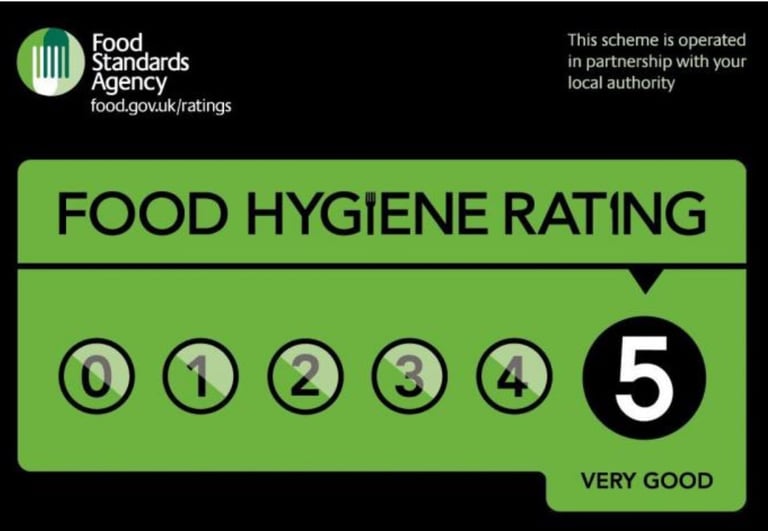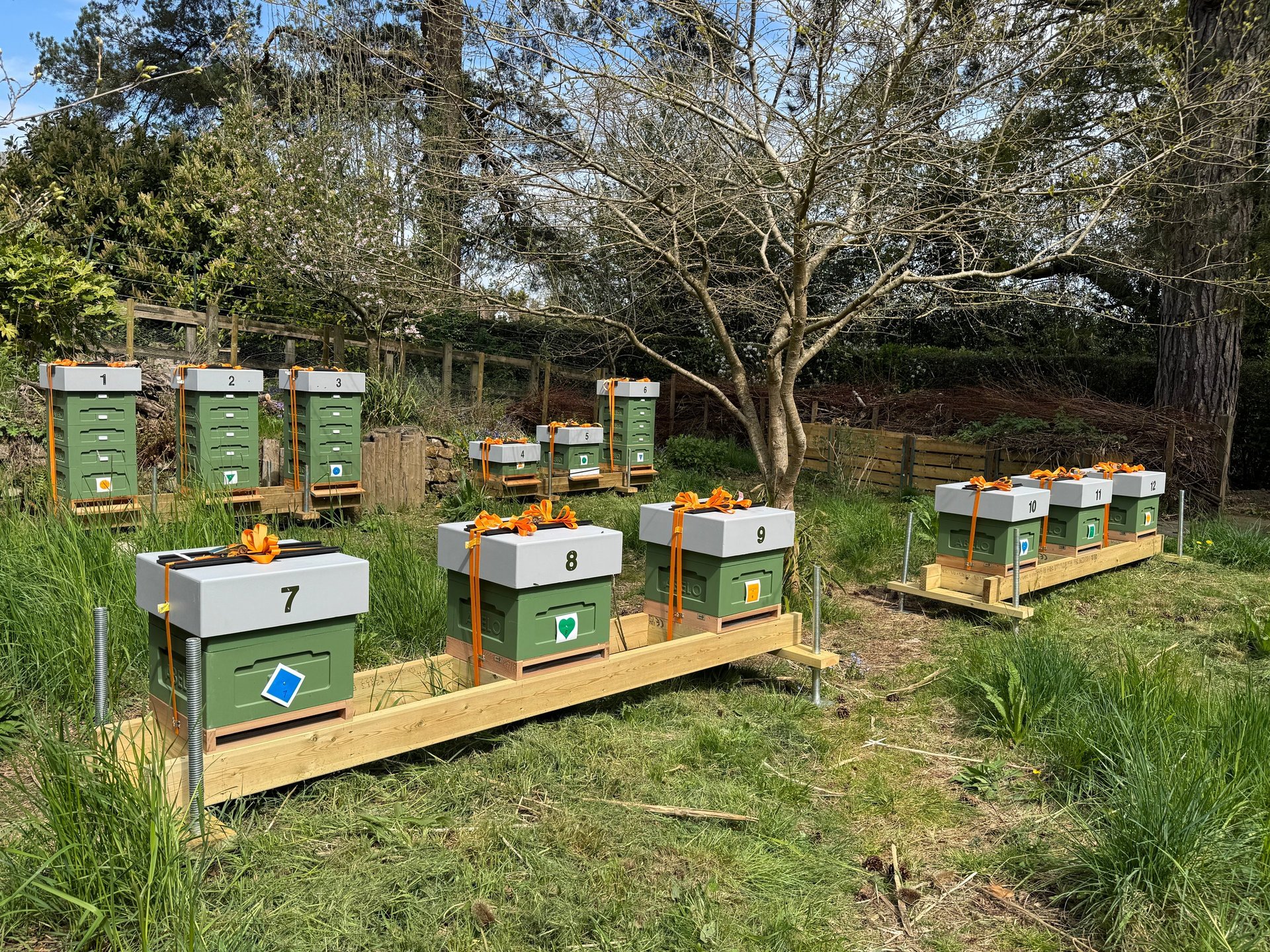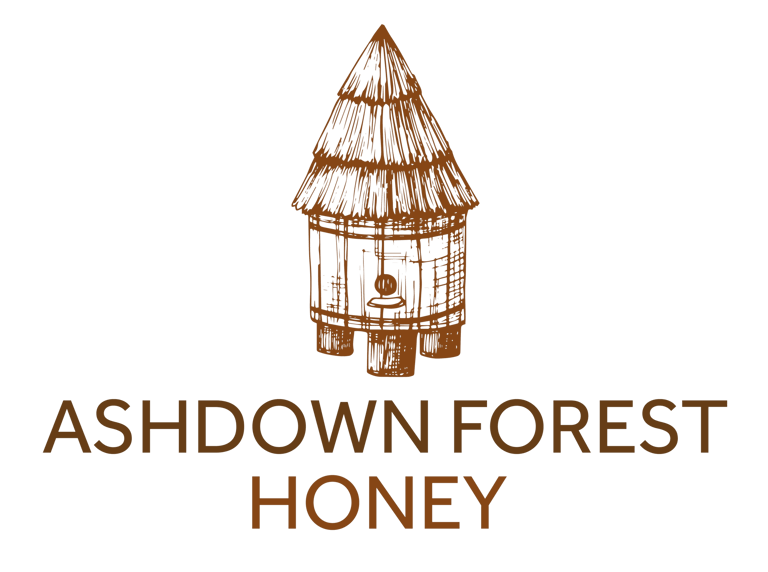The story behind Ashdown Forest Honey
Hello.
I’m Robert Clark, the beekeeper behind Ashdown Forest Honey. My journey into beekeeping began here at Ghylls Plat in Duddleswell, where my family and I have lived for over 20 years as commoners of Ashdown Forest.
In 2023, a local beekeeper first placed a couple of hives in our one-acre wildlife garden. What began as curiosity quickly grew into something deeper. By 2024, I had taken over caring for the hives myself, turning a shared interest in nature into a dedicated beekeeping venture.
As I learned more about beekeeping, I became increasingly aware that many widely accepted and so-called traditional methods did not sit comfortably with my own beliefs around animal welfare and sustainability. While these approaches are common, they often prioritise productivity and convenience over the natural behaviour and long-term resilience of the colony.
Rather than follow a system that didn’t feel right, I chose to adopt a different approach — one that better aligns with my values and with how honeybee colonies live in the wild. This low-intervention, bee-led way of working now underpins everything we do at Ashdown Forest Honey.
Our wildlife haven
Our garden is more than an apiary — it’s a living habitat designed with nature in mind. Much of the land is dedicated to supporting wildlife and sustainable living. Bees, butterflies, reptiles, birds, bats and countless other species find refuge among wildflowers, orchard trees, and natural spaces.
A connection to the forest
Living on Ashdown Forest has shaped how we care for our bees. The rich and varied flora of the heathland and surrounding woodland provides a diverse, natural forage that changes with the seasons. Our beekeeping is closely tied to this landscape, and our honey reflects it.
Every jar of Ashdown Forest Honey is the result of this place, this approach, and a deep respect for the bees themselves.


Accreditations and memberships
Ashdown Forest Honey is registered with the Food Standards Agency as a food business and inspected by Wealden District Council.


A Commitment To Quality
At Ashdown Forest Honey, quality isn’t an afterthought — it’s at the heart of everything we do. From our low‑intervention beekeeping in the ancient woodlands of Ashdown Forest to the care we take in every jar we produce, we’re committed to maintaining the highest standards
We’re proud to be members of the Guild of Fine Food, an organisation that champions artisan producers and upholds the very best in food quality. This membership reflects our dedication to crafting honey that not only tastes exceptional but is made with integrity, respect for the bees, and a deep connection to the land they forage.

Contact
© 2025 Ashdown Forest Honey - All rights reserved.
Terms, Conditions and Privacy Notice
